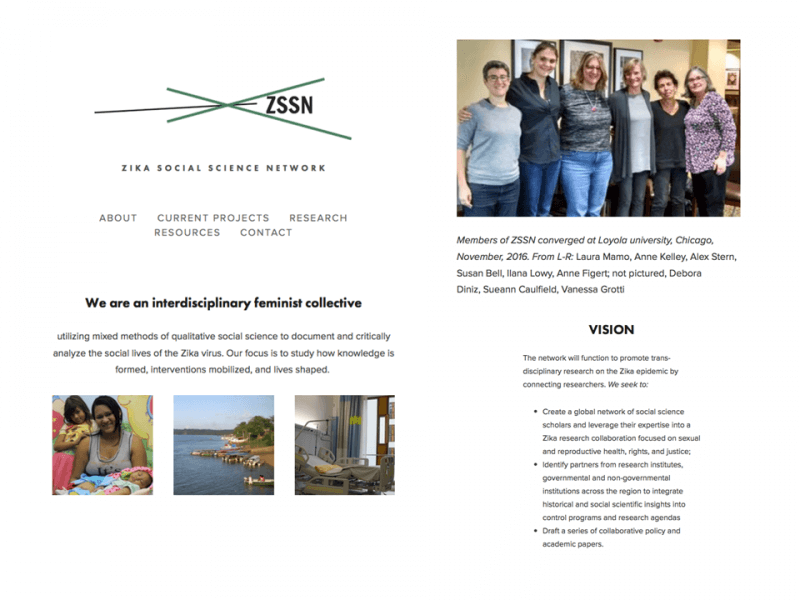Zika and Feminist STS: Building a Network, Doing Collective Scholarship
Alexandra Stern, University of Michigan;Laura Mamo, San Francisco State Uiversity; Susan E. Bell, Drexel University; Anne Figert, Loyola University Chicago; Ann Kelly, University of Exeter; Kristy Birchard, Drexel University; Sueann Caulfield, University of Michigan; Ilana Lowy, Cnrs-Cermes; Vanessa Grotti, European University Institute, Florence, Italy; Debora Diniz, International Women's Health Coalition, University of Brasilia, Brazil
Boston 2017: Pedagogy

Prompted by the immense geographic speed and sweep of the global Zika outbreak last year, we created an international collective of STS scholars trained in Sociology, History, Anthropology, and Public Health. Since 2016, the Zika Social Science Network (ZSSN) has been examining how knowledge is formed, interventions mobilized, and lives shaped by Zika. We are making and doing single- and collectively- authored papers and interventions, including creating a website that we envision as an international node for connecting Zika researchers and projects. ZSSN’s practices include familiar scholarly output and public engagement, as we meld our scholarship and activism to this collaborative endeavor.
ZSSN’s overarching approaches are anchored by concerns with biosecurity, justice, health inequalities, disability and care. We trace Zika as it emerges across as series of spatial, temporal and geographical borderlands—a convergence of infectious disease, reproductive politics and transnational flows. The Zika virus has been linked to several newborn health problems, including microcephaly. Yet the precise nature of the risks to fetuses, pregnant women or newborns remains unclear—an uncertainty amplified by the lack of treatment options, rapid diagnostics or vaccines. Women have been targeted for preventative measures, but strategies such as vector-control and contraception are undercut by the socio-economic realities of those most vulnerable to infection. Like other vector-borne diseases, Zika incidence is likely to be linked to poor sanitation and unfit housing—factors correlated to limited access to sexual health information, reproductive care, and safe abortion options. The scale and ecological nuance of transmission raise a number of challenges about the appropriate social, cultural, political and spatial orders of disease prevention and control. We apply STS, feminist, historical, ethnographic, and sociological lenses to studying the messiness of Zika, and analyze it as a touchstone of gender, inequality, reproduction, and mosquito-borne disease.
ZSSN scholars are based in the Americas and Europe. We have embarked on interconnected projects including Zika and Ethics at the Border; Zika and Reproductive Justice; Interspecies Separation and the Control of Mosquitoes; and the contested production of Zika expertise. Our network includes scholar-advocates and views feminist and lay expertise as critical to addressing social and gender inequalities related to Zika.
Our STS Making and Doing Panel will include at least four members of the ZSSN Collective. We willbe on hand during the three hour window to discuss our projects, analytical frameworks, and engagement with advocacy; share some of the “products” that we have created including our website and a documentary produced by one of our members; and have the opportunity to receive feedback from 4S attendees about strategies to incorporate STS frameworks into the study of unfolding epidemics, zoonotic diseases, reproductive health, and the operationalization of collective feminist scholarship.
Published: 01/30/2023
